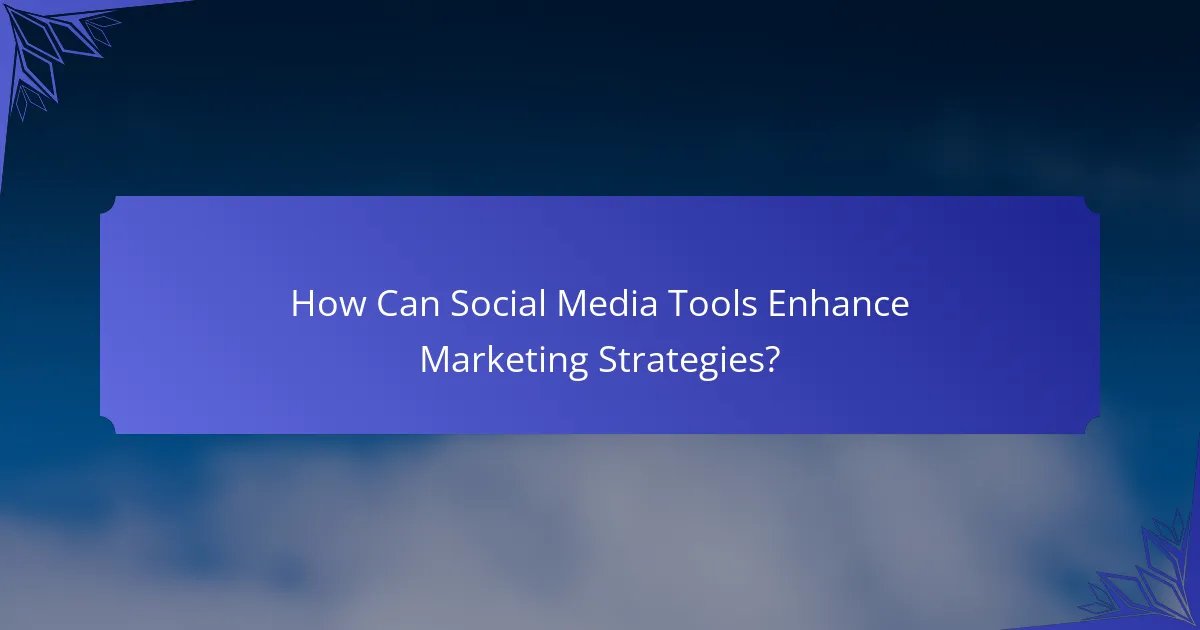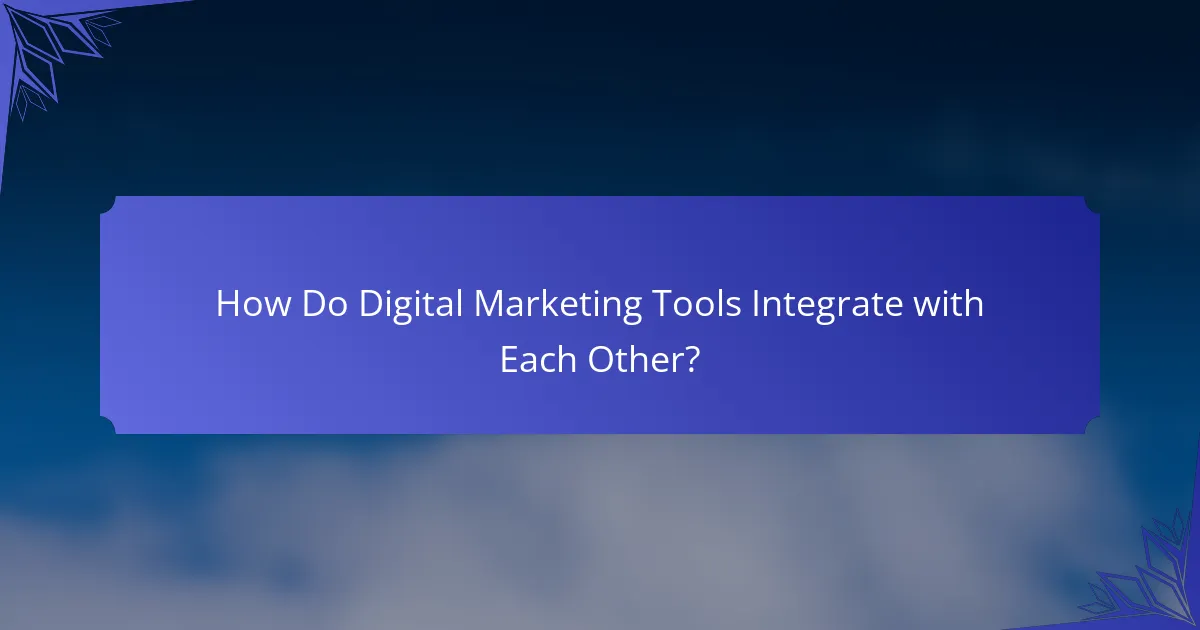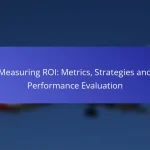In the ever-evolving landscape of digital marketing, leveraging the right tools for SEO, social media, and analytics is crucial for success. SEO tools enhance your website’s visibility by offering insights into keyword performance and competitor strategies. Meanwhile, social media tools streamline content management and engagement, while analytics platforms track user behavior and website performance, enabling data-driven decision-making. Together, these tools empower marketers to optimize their strategies and achieve their goals effectively.

What Are the Best Digital Marketing Tools for SEO?
The best digital marketing tools for SEO help optimize your website’s visibility on search engines. These tools provide insights into keyword performance, competitor strategies, and site health, enabling informed decisions to enhance your online presence.
Ahrefs for Keyword Research
Ahrefs is a powerful tool for keyword research, allowing users to discover high-traffic keywords and analyze their difficulty. It provides a comprehensive database of keywords, along with metrics like search volume and click potential, which help prioritize targets.
To effectively use Ahrefs, start by entering a seed keyword to explore related terms. Focus on keywords with a balance of decent search volume and manageable difficulty to maximize your chances of ranking well.
SEMrush for Competitor Analysis
SEMrush excels in competitor analysis, enabling users to uncover strategies employed by rivals in their niche. By analyzing competitors’ organic and paid search performance, you can identify gaps in your own strategy and find opportunities for improvement.
Utilize SEMrush’s Domain Overview tool to compare your site against competitors. Look for keywords they rank for that you don’t, and consider targeting those to enhance your visibility.
Google Search Console for Performance Tracking
Google Search Console is essential for tracking your website’s performance in search results. It provides insights into how your site appears in search, including click-through rates, impressions, and average position for various queries.
Regularly check the Performance report to identify which keywords drive traffic and which pages need optimization. Pay attention to any errors or issues flagged by the tool, as resolving these can significantly improve your site’s performance.
Moz for Link Building
Moz is a valuable tool for link building, offering features that help identify potential link opportunities and track your site’s link profile. Its metrics, such as Domain Authority, help gauge the quality of potential backlinks.
To leverage Moz effectively, use the Link Explorer to analyze competitor backlinks and discover sites that might be willing to link to your content. Focus on building relationships with high-authority sites to enhance your own site’s credibility.
Yoast SEO for On-Page Optimization
Yoast SEO is a popular plugin for optimizing on-page elements of your website. It provides real-time feedback on content readability, keyword usage, and meta tags, ensuring your pages are well-optimized for search engines.
When using Yoast, pay attention to the suggestions it provides for improving SEO scores. Aim for a green light for both readability and SEO analysis to ensure your content is accessible and optimized for search engines.

How Can Social Media Tools Enhance Marketing Strategies?
Social media tools can significantly enhance marketing strategies by streamlining content management, improving audience engagement, and providing valuable analytics. These tools help marketers optimize their social media presence and make data-driven decisions to boost campaign effectiveness.
Hootsuite for Social Media Management
Hootsuite is a comprehensive social media management platform that allows users to schedule posts, monitor engagement, and analyze performance across multiple networks from a single dashboard. By consolidating various social media accounts, it saves time and ensures consistent messaging.
When using Hootsuite, consider its features like bulk scheduling and team collaboration tools. These can enhance efficiency, especially for businesses managing multiple accounts or campaigns. However, be mindful of the learning curve associated with its more advanced functionalities.
Buffer for Scheduling Posts
Buffer specializes in scheduling social media posts, making it easy to plan content in advance. Users can create a posting schedule and Buffer will automatically publish posts at optimal times, maximizing audience reach and engagement.
To get the most out of Buffer, utilize its analytics to determine the best times for posting based on audience activity. This can help improve engagement rates. However, avoid over-scheduling, as it may lead to a lack of real-time interaction with followers.
Sprout Social for Analytics
Sprout Social provides in-depth analytics that help marketers understand audience behavior and campaign performance. Its reporting features allow users to track engagement metrics, follower growth, and content effectiveness, enabling data-driven adjustments to strategies.
When using Sprout Social, focus on its customizable reporting options to tailor insights to your specific goals. Regularly reviewing these analytics can help identify trends and inform future content strategies. Be cautious of relying solely on data; qualitative feedback from followers is equally important.
Canva for Visual Content Creation
Canva is a user-friendly design tool that enables marketers to create visually appealing graphics for social media. With a wide range of templates and design elements, it simplifies the process of producing professional-quality visuals without needing extensive design skills.
To leverage Canva effectively, explore its social media-specific templates and dimensions to ensure your content fits platform requirements. Regularly updating your visuals can keep your brand fresh and engaging. However, avoid using overly complex designs that may distract from your message.

What Analytics Tools Are Essential for Digital Marketing?
Essential analytics tools for digital marketing include platforms that help track website traffic, user behavior, and overall user experience. These tools provide valuable insights that can inform strategy and improve performance across various digital channels.
Google Analytics for Website Traffic Analysis
Google Analytics is a powerful tool for analyzing website traffic, offering insights into visitor behavior, traffic sources, and conversion rates. It allows marketers to track key metrics such as page views, bounce rates, and session duration, helping to identify which content resonates with users.
To get started, set up goals to measure conversions, such as newsletter sign-ups or product purchases. Regularly review reports to understand user demographics and behavior patterns, which can guide content and marketing strategies.
Mixpanel for User Behavior Tracking
Mixpanel specializes in tracking user interactions with web and mobile applications, providing detailed insights into user behavior over time. This tool helps businesses analyze how users engage with specific features, allowing for data-driven decisions to enhance user experience.
Utilize Mixpanel’s event tracking to monitor actions like button clicks or video plays. This data can reveal trends and help identify areas for improvement, such as optimizing onboarding processes or enhancing feature usage.
Hotjar for User Experience Insights
Hotjar offers tools for understanding user experience through heatmaps, session recordings, and feedback polls. These features help visualize how users interact with a website, highlighting areas of interest and potential friction points.
Implement heatmaps to see where users click most often and use session recordings to observe real user journeys. Gathering feedback through polls can provide direct insights into user preferences and pain points, enabling targeted improvements.

What Criteria Should You Use to Choose Digital Marketing Tools?
When selecting digital marketing tools, consider factors such as budget, feature set, and user experience. These criteria will help you identify the tools that best fit your marketing strategy and operational needs.
Budget Considerations
Budget is a critical factor in choosing digital marketing tools. Determine how much you can allocate monthly or annually for tools, keeping in mind that costs can vary significantly based on features and capabilities. For example, basic SEO tools may range from $20 to $100 per month, while comprehensive analytics platforms can exceed $500 monthly.
Be mindful of hidden costs, such as training, add-ons, or subscription fees. Always evaluate whether the tool’s pricing aligns with the expected return on investment (ROI) for your marketing efforts.
Feature Set Comparison
Compare the features of different digital marketing tools to ensure they meet your specific needs. Essential features might include keyword tracking, social media scheduling, and performance analytics. Create a checklist of must-have features versus nice-to-have ones to streamline your decision-making process.
For instance, if you prioritize SEO, look for tools that offer robust keyword research and backlink analysis. Use comparison tables to visualize how different tools stack up against each other, focusing on the features that matter most to your strategy.
User Experience and Support
User experience is vital for maximizing the effectiveness of digital marketing tools. A user-friendly interface can reduce the learning curve and increase productivity. Look for tools that offer intuitive dashboards and easy navigation.
Additionally, consider the level of customer support provided. Check for availability of resources like tutorials, live chat, or dedicated account managers. Tools with strong support can help you troubleshoot issues quickly, ensuring your marketing campaigns run smoothly.

How Do Digital Marketing Tools Integrate with Each Other?
Digital marketing tools integrate through various methods that enhance data sharing and functionality, allowing marketers to streamline their campaigns. This integration helps in creating a cohesive strategy that leverages insights from SEO, social media, and analytics tools for better decision-making.
API Connections for Data Sharing
API connections enable different digital marketing tools to communicate and share data seamlessly. For instance, an SEO tool can send keyword performance data directly to a social media management platform, allowing marketers to tailor their content based on real-time insights.
When setting up API connections, ensure that the tools you choose support the necessary integrations. Most popular platforms offer extensive documentation and support for connecting APIs, making it easier to automate data flows.
Third-Party Integrations for Enhanced Functionality
Third-party integrations expand the capabilities of your digital marketing tools by connecting them with additional applications. For example, integrating a CRM system with your email marketing software can help personalize campaigns based on customer behavior and preferences.
Consider using platforms like Zapier or Integromat to create workflows that connect multiple tools without needing extensive coding knowledge. These integrations can save time and reduce manual errors, enhancing overall marketing efficiency.

What Are the Emerging Trends in Digital Marketing Tools?
Emerging trends in digital marketing tools focus on automation, personalization, and data-driven strategies. These trends enhance efficiency and effectiveness in reaching target audiences while adapting to changing consumer behaviors.
SEO Tools
SEO tools are evolving to prioritize user experience and content relevance. Modern tools utilize artificial intelligence to analyze search intent and provide insights on optimizing content for better visibility. Consider tools that offer features like keyword tracking, site audits, and competitive analysis.
For example, platforms like SEMrush and Ahrefs allow marketers to identify high-value keywords and track their rankings over time. Using these tools can significantly improve organic traffic when implemented correctly.
Social Media Tools
Social media tools are increasingly leveraging automation and analytics to enhance engagement. These tools help businesses schedule posts, analyze audience interactions, and measure campaign performance. Look for platforms that integrate with multiple social networks for streamlined management.
Tools like Hootsuite and Buffer can assist in managing multiple accounts and provide insights into the best times to post based on audience activity. Regularly reviewing analytics can help refine strategies and improve overall engagement rates.
Analytics Tools
Analytics tools are becoming more sophisticated, enabling deeper insights into user behavior and campaign performance. These tools help marketers track key performance indicators (KPIs) and make data-driven decisions. Ensure your analytics tools can integrate with other marketing platforms for comprehensive insights.
Google Analytics remains a popular choice, offering robust features for tracking website traffic and user interactions. Setting up goals and conversion tracking can provide valuable data for optimizing marketing efforts and improving ROI.


